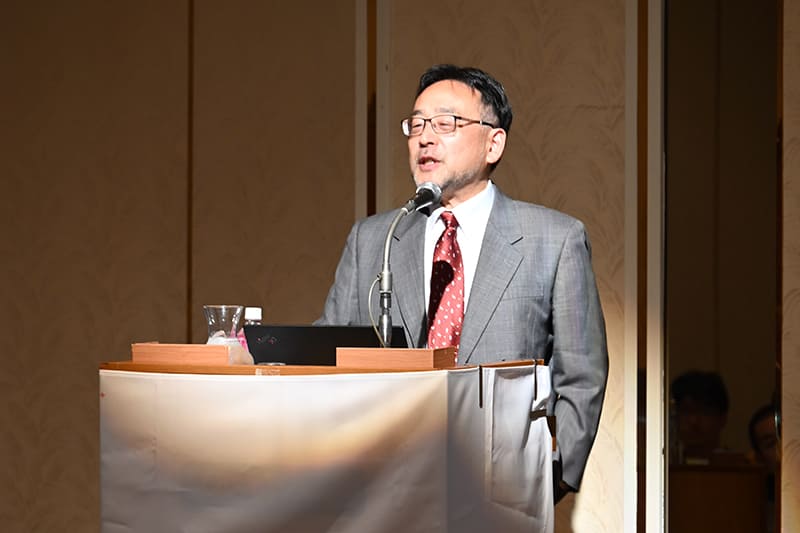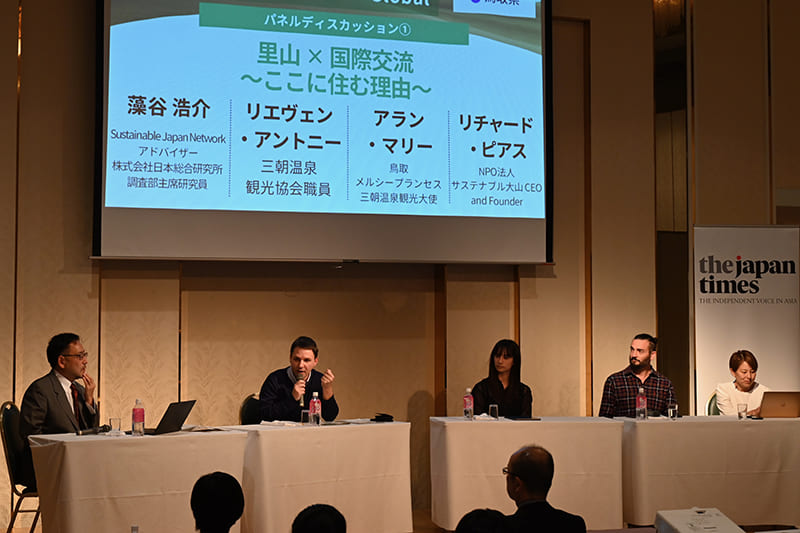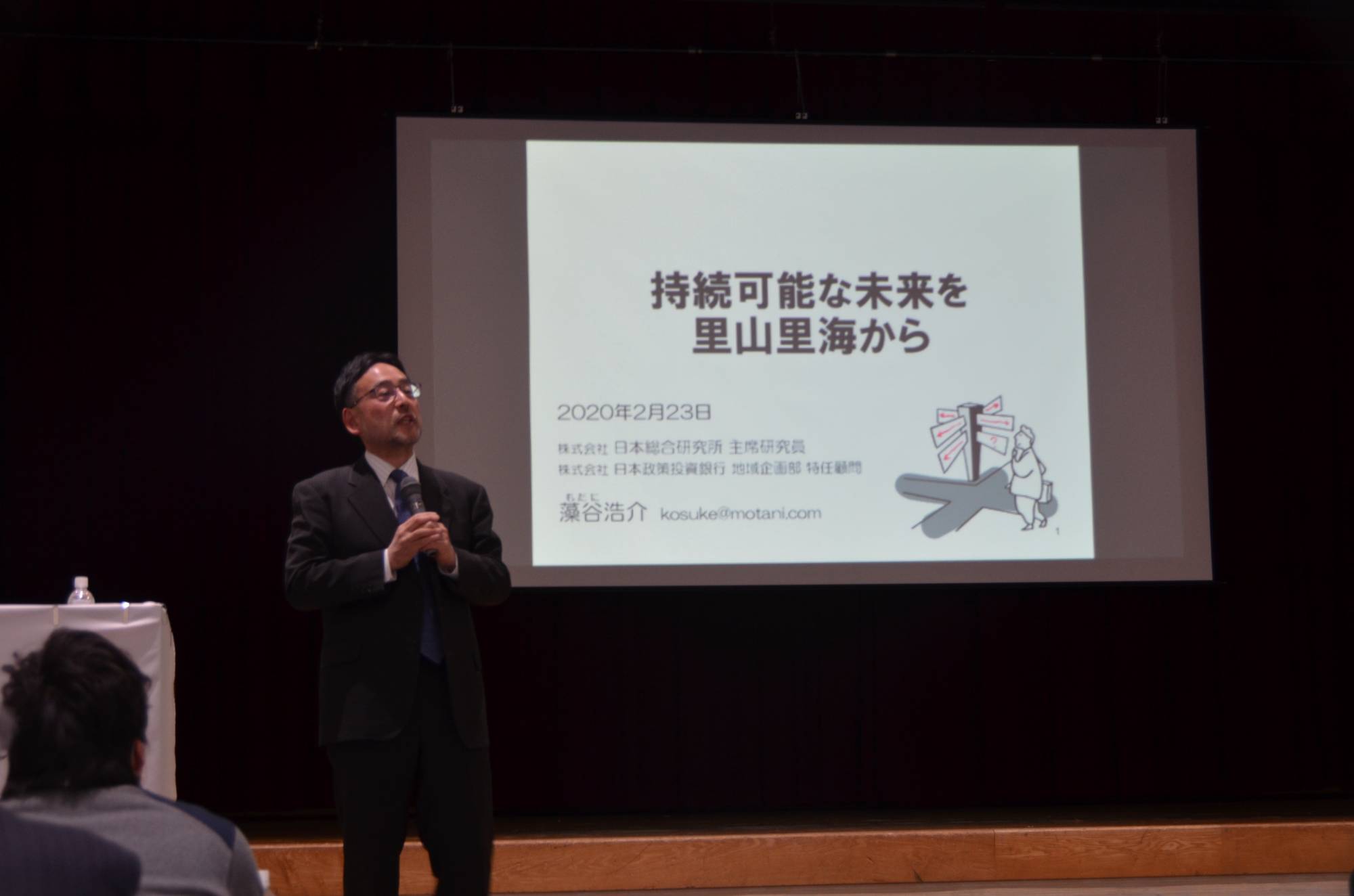November 21, 2023
Surprising facts on Tottori
Senior researcher at the Japan Research Institute

On the fourth annual event to share experiences about revitalizing rural economies through effectively using existing resources was held at the Hotel New Otani Tottori on Oct. 28 and 29, co-hosted by The Japan Times’ Sustainable Japan Network and Tottori Prefecture, Japan Research Institute senior researcher Kosuke Motani shared some eye-opening facts on Tottori and its potential. “Although Tottori is the least-populated prefecture in Japan, there are 30 countries that have a smaller population than Tottori,” he said.
He then named a few countries that sold more to Japan than they bought from it in 2022. “Countries like Italy and Switzerland that have proven to be stronger than Japan in terms of trade are tourism-based economies with many handmade brands. In these countries, there are no megacities, and rural areas hold economic competitiveness,” he said, pointing out that superpowers like the United States, the home of mass production, cannot beat those countries in terms trade surplus. “We are not living in the time of ‘bigger is better’ anymore. Small places like Tottori have the odds in their favor,” he said.
Motani explained that deaths due to old age is a bigger reason for depopulation than young people leaving for large cities. However, this does not mean that even Tokyo can be free from the fear of depopulation. Tokyo’s population is expected to peak in 2030 and decrease from then on. Motani pointed out that people who moved from rural areas to Tokyo during the postwar period, when Tokyo’s population saw its biggest explosion, are all getting old, and the current and future inflow of youths is not going to make up for the accelerating depopulation due to aging.
Tottori, on the other hand, lost a lot of its working population to big cities during the postwar era of rapid economic growth, meaning that its depopulation due to deaths of the elderly will come to an end soon because there aren’t enough people in the generation of those who will next become elderly. “Fewer old people means a smaller budget needed for medical and welfare services. Imagine using that money for child-rearing support,” Motani said.

















